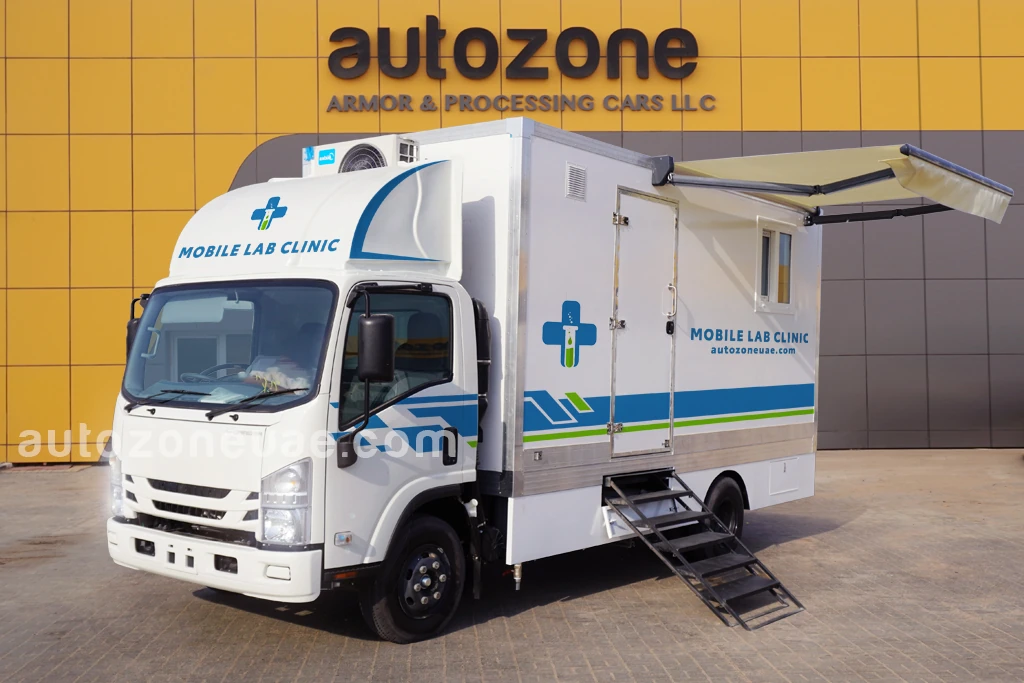In the fast-paced world of healthcare, first and foremost, accessibility and efficiency are paramount. Additionally, patients often require immediate attention and care, regardless of their location. This is where mobile medical units step in, thereby playing a vital role in bridging the gap between healthcare services and those in need. In this article, we delve into the crucial role these mobile units play in modern healthcare.
Key Features of Mobile Medical Units:
Mobility:
The primary advantage of MMUs is their mobility. Firstly, they can reach areas where medical facilities are scarce, including disaster-stricken zones or underserved communities. This mobility is essential for timely medical intervention during emergencies.
Customization:
MMUs are designed to cater to specific medical needs. They can customize these units to provide specialized services, whether it’s a mobile dental clinic, a mammography unit, or a blood donation bus.
Versatility:
MMUs are versatile, allowing them to accommodating a wide range of medical equipment and technologies. They can host diagnostic tools, have telemedicine capabilities, and even serve as mobile pharmacies, ensuring comprehensive healthcare.
Community Engagement:
Beyond treatment, MMUs often engage in community outreach and health education programs, promoting preventive care and wellness. They become an integral part of community healthcare ecosystems.
Emergency Response:
During disasters, notably, MMUs serve as essential components of emergency response teams. They offer immediate medical care and support in disaster-stricken areas where traditional infrastructure may be compromised.
The Impact of Mobile Medical Units:
The significance of mobile medical units in healthcare cannot be overstated. Here are some key ways they make a difference:
Improved Access:
Mobile Medical Units (MMUs) play a critical role in improving healthcare access, especially for underserved populations. These units are equipped to reach areas that often lack traditional healthcare facilities. Here’s how they extend access:
Remote Regions:
MMUs serve as lifelines for remote and rural communities where access to hospitals or clinics can be limited. By bringing healthcare directly to these areas, they significantly reduce the burden of long journeys for medical care.
Vulnerable Communities:
Underserved and vulnerable communities, such as low-income neighborhoods, migrant worker camps, or homeless populations, greatly benefit from MMUs. These units play a pivotal role in breaking down economic and social barriers to healthcare.
Geographical Challenges:
In regions with geographical challenges like difficult terrain or distant islands, MMUs navigate these obstacles with precision, ensuring that even the most isolated populations receive essential medical services.
Timely Care:
Rapid response when every minute counts during emergencies and outbreaks, time is of the essence. MMUs step in, playing an invaluable role in providing rapid response capabilities ensure swift and efficient delivery of medical care.
Critical Situations:
MMUs are equipped to provide critical care when needed most, frequently arriving ahead of traditional medical services, whether it’s responding to a car accident on a remote highway or addressing a sudden health crisis in a community.
Preventive Care:
Fostering health awareness and early intervention MMUs aren’t just about treatment. They’re also champions of preventive care. They contribute to public health by offering vaccinations, screenings, and health education.
Screenings:
MMUs conduct health screenings for conditions like diabetes, hypertension, and cancer. Early detection through screenings allows for timely treatment, improving health outcomes.
Health Education:
These units engage in health education programs, teaching communities about nutrition, hygiene, and disease prevention. Communities equipped with information are better able to maintain their health.
Specialized Services:
MMUs can tailor their services to address unique healthcare needs, catering to specific healthcare requirements. Here are examples of specialized units.
Mobile Dental Clinics:
Autozone UAE offers mobile dental clinic units, including check-ups, cleanings, and even minor dental procedures. They are crucial for improving oral health in underserved areas.
Eye Care Units:
Specialized in vision care, these units offer eye exams, prescription glasses, and treatment for common eye conditions, ensuring good eye health in communities.
Veterinary Clinics:
Some MMUs are designed for pet healthcare and mobile pet grooming vans, addressing the needs of pets in communities that lack easy access to veterinary care.

Community Building:
Fostering trust and engagement MMUs do more than provide medical care; they foster trust and community engagement.
Trust in Healthcare:
By consistently delivering healthcare services, MMUs foster trust within communities. Residents come to rely on these units as dependable sources of medical support.
Dialogue and Education:
MMUs create opportunities for dialogue between healthcare professionals and communities. Additionally, they engage in conversations about health, empowering individuals to take charge of their well-being.
Furthermore, mobile medical units are the embodiment of healthcare on the move, addressing immediate needs while promoting long-term health and well-being. Their versatility and adaptability ensure that healthcare reaches every corner, leaving no one behind in the pursuit of better health.
Accessibility Beyond Brick and Mortar:
Mobile Medical Units, often referred to as MMUs, have become a symbol of healthcare adaptability and innovation. These specialized vehicles have the capability to provide a wide range of medical services, from basic check-ups to complex procedures, right at the doorstep of communities. They prove to be particularly valuable in areas with limited access to traditional healthcare facilities, such as remote rural regions or densely populated urban areas.
Conclusion:
Mobile medical units embody the essence of adaptable, patient-centered healthcare. Furthermore, they bring essential services to the heart of communities, thus breaking down geographical and logistical barriers. Additionally, These units represent a collaborative effort between healthcare providers, manufacturers, and communities, all working together to improve health outcomes and quality of life.
In an era of rapid technological advancements and evolving healthcare needs, the vital role of mobile medical units continues to expand. They ensure that healthcare is not confined to hospital walls but is available wherever there’s a need for care and healing.
As we move forward, let us recognize and celebrate the mobile medical units that are transforming healthcare delivery, thereby making it more inclusive, responsive, and accessible to all.

 AR
AR FR
FR






